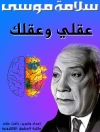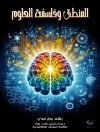The
Critique of Pure Reason is one of the most important philosophical texts ever written. Like Copernicus, Kant dared to question the ordinary perspective from which we habitually view the world.
Kants moderate form of skepticism is known as ‘transcendental idealism, ‘ and its primary tenet is that we cannot know things as they are in themselves because we only know things as they appear to us. His thesis had a monumental influence on the culture of the last two centuries, giving rise to cultural movements and theoretical approaches including: German Idealism, Romanticism, Modernism, Marxism, Existentialism, Psychoanalysis, Structuralism, Post-Structuralism, and even Quantum Physics.
Sobre el autor
Immanuel Kant (1724-1804) has been caricatured as a stiff German professor, whose Stoic habits were so predictable that the people of Königsberg, his hometown, could set their clocks by his daily walks. Kants life is best described as a heroic struggle to discover order within chaos or, better, an effort to fix human thought and behavior within it proper limits. He lived and worked during the Enlightenment, a time when political, religious, and intellectual freedom erupted across the Western world












